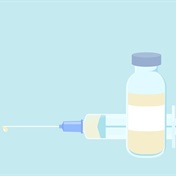
Ahead of World Immunisation Day on 24 April, Dr Dominique Stott, Executive: Medical Standards and Services at PPS, says vaccinations are imperative because they help to prevent massive outbreaks of disease and assist in containing the number of people infected. “As a result of WHO vaccination programmes against polio - which used to result in 30-40% fatality and lifelong disability if the patient survived - the disease has now been formally recognised as eradicated worldwide.”
Vaccines cause the immune system to develop antibodies to protect against that specific disease in the future and usually offer lifelong or long-term immunity, says Dr Stott. “This is important where a disease contracted as a child, such as chicken pox, may be relatively innocuous, but as an adult may result in serious complications or death.
Important for immune-compromised groups
It is particularly necessary for immune-compromised groups who are more prone to the development of disease either because of associated infections, living and working conditions or age. Children who are not vaccinated are especially at risk as they may contract serious infections through play groups and contact with other unvaccinated children.”
Dr Stott says there are very few adverse effects of vaccinations and in the vast majority of cases the adverse effects are harmless. “Soreness or redness at the site of the injection, or fever, rash and general aching are the most common side effects. However, these mild events are significantly less debilitating than contracting the disease itself. In rare cases there may be an allergic reaction to the vaccine, such as those vaccines derived from eggs in egg-allergic people.”
Despite common misconceptions, she says there is no correlation found between certain types of vaccination and autism in children.
R8 million used for child vaccinations
Dr Stott says the need for vaccination has been identified by the Department of Health – which spends approximately R8 million a year to vaccinate children – as a cornerstone of public healthcare. “As a result, local clinics and community health centres offer specific vaccinations free of charge or with minimal cost against diseases such as polio, tuberculosis, haemophilus influenza B, diphtheria, mumps, rubella (German Measles), chicken pox and Hepatitis B.
“Women are susceptible to contracting the Human Papilloma Virus (HPV) which is linked in some cases to the development of cervix cancer. However, by having the vaccination at an early age prior to onset of sexual activity, many of these cases will be prevented. This is particularly important as cervix cancer is highest cause of female cancer deaths in South Africa.”
Dr Stott says if vaccinations are not carried out, diseases may develop, which lead to serious complications. “For professionals working in the health sector such as doctors and pharmacists, they must ensure they have received vaccinations especially against Hepatitis but also TB, as contracting these diseases may lead to extensive time off work.”
Parents urged to vaccinate their children
Parents must ensure they get their children vaccinated against all those mentioned diseases, says Dr Stott. “It is easy to do and never too late. It is also important to ensure that the full vaccination programme is followed for all children and not stopped halfway, as in many cases there are multiple boosters required at specific intervals. It is only by adhering to the full programme that the required immunity is ensured.
“Preventing these diseases is a lot simpler than curing them. For those in doubt about whether they or their children have been vaccinated, or which vaccinations are needed, it is best to speak to a qualified medical professional or visit the nearest clinic to seek advice before it is too late,” concludes Dr Stott.




 Publications
Publications
 Partners
Partners











